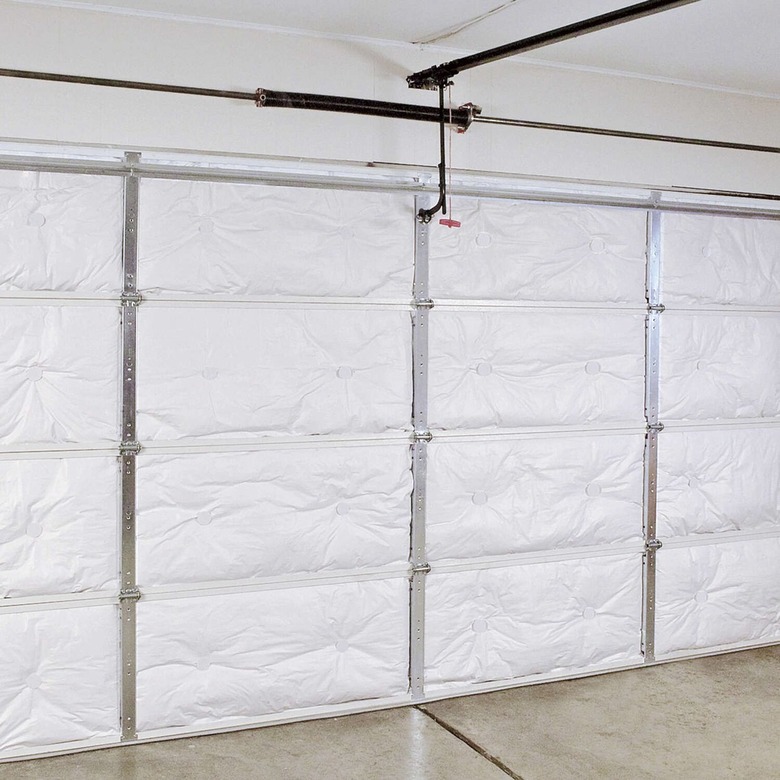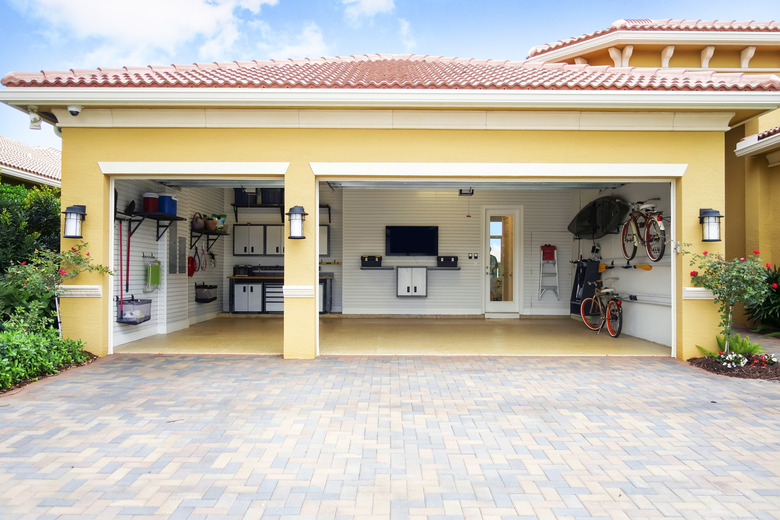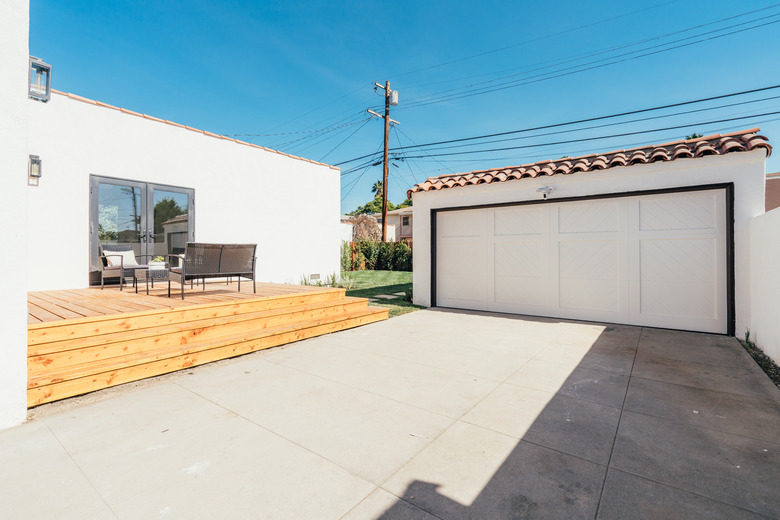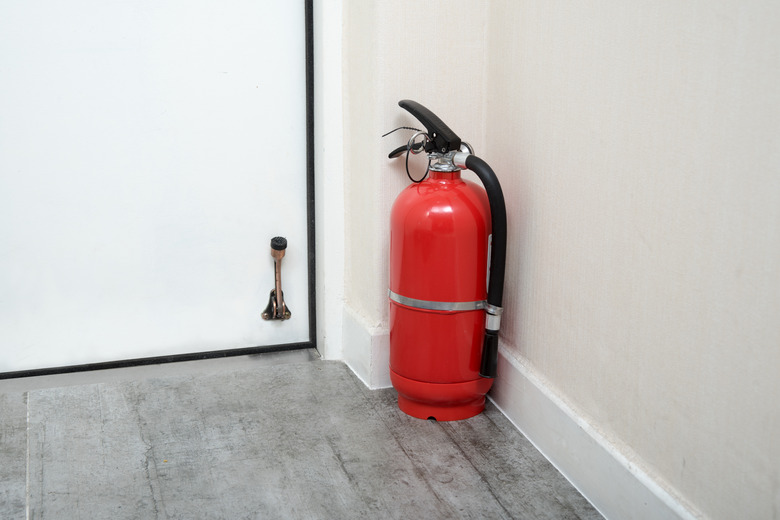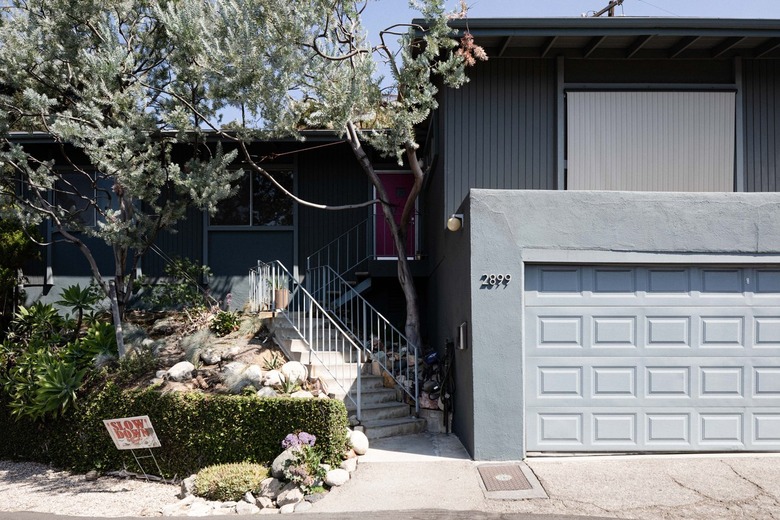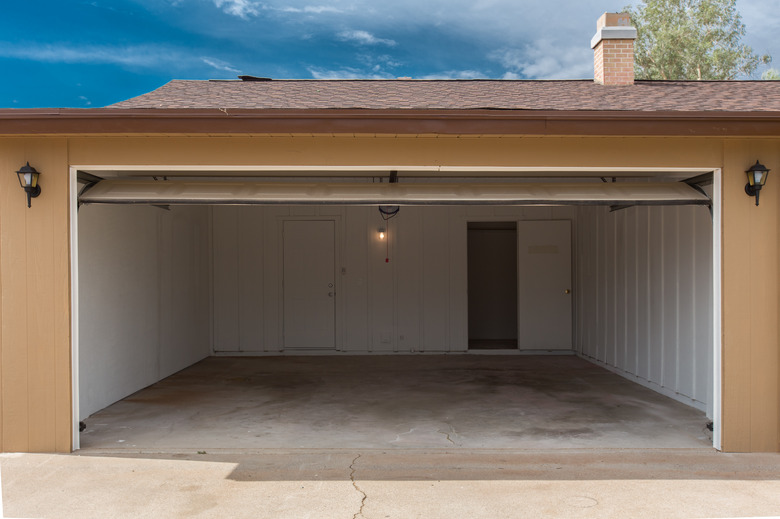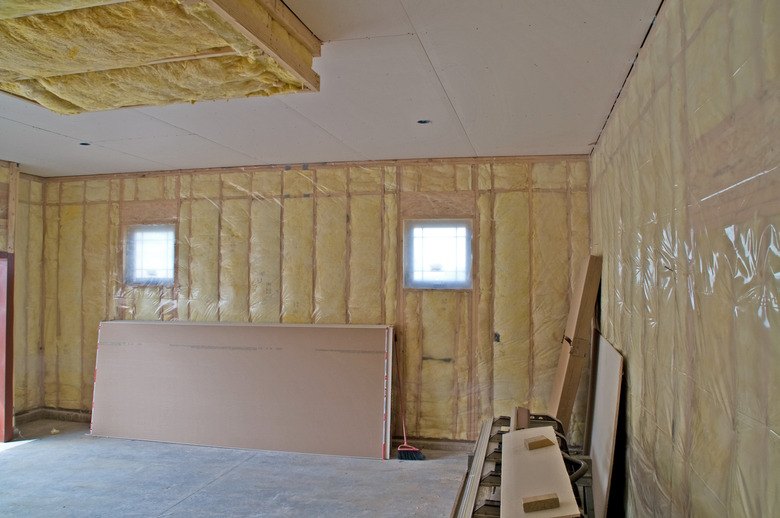The Pros And Cons Of Insulating A Garage
We may receive a commission on purchases made from links.
There's no question when it comes to the value of insulation in your home, but in your garage, things aren't so cut and dry. Whether or not you would be better off insulating the garage depends on how you use the space, which is why it's beneficial to consider the pros and cons of insulating a garage before making your decision. As a general rule, an insulated garage makes sense for homeowners who regularly spend time there, but for those who mostly use it to store their stuff and park their car, insulation isn't always worth the cost.
Pros
- Lower energy bills
- More comfortable inside garage
- Protect belongings from extreme temperatures
- Helps keep pests out of garage
- Increased fire resistance
- Stronger garage door
Cons
- Expensive
- Unlikely to see return on investment when you sell
- May trap heat in garage
- Unattractive appearance
Determine the Best Use of Garage Insulation
Determine the Best Use of Garage Insulation
When you're deciding whether or not you should insulate your garage, it's important to recognize that there is no one solution that is right for everyone. That's because while insulation can improve the comfort and energy efficiency of the space, it also costs quite a bit — enough that you may never recoup the costs in energy savings. If you're thinking in purely monetary terms, there are plenty of other insulation projects that will pay off more quickly. However, if you're concerned about comfort, insulation can make your garage a nicer place to be.
When learning about the pros and cons of insulating a garage, think about how they will apply to your own lifestyle and the climate in your area. Do you mostly use your garage to store unimportant items and to park your car? You probably don't need insulation, and it could make the space less comfortable if you park inside the garage on warm summer days.
On the other hand, if you or any of your family members like to spend time in the garage — for example, if you use it for a home gym or band practice or have a spare bedroom in the loft — then insulation might be worth it for you. Even if you just use the space for storage, insulation could help protect your stuff from multiple types of property damage.
Pro: Reduced Energy Bills
Pro: Reduced Energy Bills
No one wants to spend more to heat and cool their home, which is why proper home insulation is so important. A noninsulated garage that's at or below freezing can dramatically cool down the adjoining rooms during the winter and increase your energy costs. Insulation can help reduce your bills if you live somewhere with freezing winters and have an attached garage — especially if you have a door connecting the garage to the rest of the house. Insulating your garage means that in winter the adjoining rooms will stay warmer, and you can open the door without freezing air entering your home.
Of course, if you have a heated or cooled garage, insulation is a must-have in order to prevent the climate-controlled air from escaping. While insulation won't heat your garage in the winter or cool it in the summer, it will increase the energy efficiency of the space by slowing the transfer of hot or cold air in and out of the room.
Pro: Increased Comfort
Pro: Increased Comfort
Insulation may not heat or cool your garage, but it will help protect it from extreme temperatures. This alone could make the space comfortable enough for use throughout the year depending on your location. Do you need a workshop, gym, playroom, home office, or even spare bedroom? Your insulated garage could be just right for your needs, though you may still need to rely on a little additional heating or cooling during particularly cold or hot weather.
Pro: Your Stuff Will Be Safer
Pro: Your Stuff Will Be Safer
If you just use your garage for storage and parking, insulation can protect your property. After all, there are many things that are not meant to be stored in really hot or cold conditions. In fact, insulation can keep your garage 10 to 20 degrees warmer than the outside temperatures in freezing weather. This means you can protect items that are not supposed to be kept at extremely low or high temperatures, which could include fertilizers, pesticides, paints, car fluids, candles, artwork, collectibles, electronics, and more.
Aside from protecting your belongings from extreme heat and cold, insulation can also keep moisture from snow, sleet, and rain out of the garage. This can keep clothing free from mold, your tools free from rust, and your electronics free from circuit-board-destroying moisture.
Even your car is better off being stored in an insulated garage if you live in an area with particularly chilly winters. Freezing temperatures can harm your car battery, cause your windshield wipers to become brittle, and thicken many of the fluids in the engine, such as motor oil, power steering fluid, and transmission fluid, all of which could cause problems for you on the road.
Pro: Keep Out Pests
Pro: Keep Out Pests
When you insulate your garage, you'll add weatherstripping to the doors, insulation materials to the garage walls, and garage door insulation, and while doing all that, you'll no doubt be looking for cracks, holes, or gaps to seal up with expanding foam. This won't just improve the R-value (or how well a type of insulation keeps heat from leaving the space) of the garage but will also turn what is normally a fairly porous room into a more secure space that will prohibit entry from pests, like rats, snakes, raccoons, spiders, and roaches. Of course, whenever you operate your garage door opener, you'll be opening the door not just for your car but for any curious critters, so don't expect your garage to be impenetrable unless you leave it closed all the time.
Pro: Noise Reduction
Pro: Noise Reduction
Most people don't want to hear everything their neighbors are up to nor do they want their private conversations to be heard by people passing by on the sidewalk. Insulation can dampen sound by as much as 16 decibels depending on the type and thickness of your insulation. This alone can make insulation worth it if you frequently do loud things in your garage that may annoy your neighbors, such as using power tools or playing music.
Pro: Fire Resistance
Pro: Fire Resistance
Most forms of insulation have fire-retardant properties, meaning they can help protect your family and your property from damage. Though insulation can't stop a fire from happening, it can help slow its spread, and when paired with a heat alarm, it can give you a better chance of safely escaping or even putting out the fire. In fact, cellulose, the most fireproof of all insulation products, can withstand temperatures of up to 300 degrees Fahrenheit before combusting. This is a worthwhile consideration because the U.S. Fire Administration says that there are 6,600 garage fires in America every year, which result in 30 deaths, 400 injuries, and over $457 million in damage to property.
Pro: Stronger Garage Door
Pro: Stronger Garage Door
While experts agree that it's not worth buying an insulated garage door if the rest of your garage isn't insulated, it's nice to know that the extra layer of insulation actually helps support the garage door itself. Of course, that's only true of certain materials, but if you have a steel or aluminum garage door, the solid-core insulation in the center will increase the door's durability and help protect it against dents.
Con: Insulation Is Expensive
Con: Insulation Is Expensive
As a DIY project, garage insulation usually costs between 50 cents and $1.25 per square foot, with the price depending on the type of insulation. If you opt for professional installation, the price can easily double. This means that the overall price will come out to anywhere between $1,500 and $8,000, though this doesn't include the cost of insulating the garage door, which will typically add another $200 to $300 to the budget.
Keep in mind that whether your garage has open walls with visible studs or is finished with drywall will impact the cost and the difficulty of the project because open walls can be fitted with rigid foam boards or lined with fiberglass insulation batts, while drywall needs to be opened and filled with spray foam insulation before being sealed and patched.
Con: Little Return on Investment
Con: Little Return on Investment
If you're hoping to balance this investment with an increase in your home's resale value, it's worth noting that there's no proven correlation between the two since this isn't typically something about which buyers care. Similarly, while insulation can improve your home's overall energy efficiency, most homeowners will need to wait decades for the project to pay for itself in energy savings, and many people may never recoup the expense.
Con: It May Get Too Hot
Con: It May Get Too Hot
Insulation is great for keeping your garage warmer during cold weather, but it can make things unbearably warm in the summer. If you drive a hot car into your garage on a hot day and leave it to cool down, it will trap the heat from your car inside, causing your garage to feel uncomfortably hot unless you leave the garage door open.
So, if you live in a hot climate, you may be better off not insulating your garage unless you don't typically park your car inside. If you spend a lot of time in your garage and live somewhere with notably hot summers, insulation will still keep you cool in the summer as long as you park elsewhere.
Con: It Can Be Unattractive
Con: It Can Be Unattractive
From a purely aesthetic perspective, unfinished walls look more unattractive with bare insulation. For many homeowners, the appearance of their garage walls isn't a major concern, but if it is, you may want to either skip the insulation or pay a little more to finish the walls with drywall panels. It's also worth noting that fiberglass batting is a skin irritant, so it may be best to finish the walls if you use this type of insulation in order to protect yourself and your family members from accidentally brushing against it later on.
